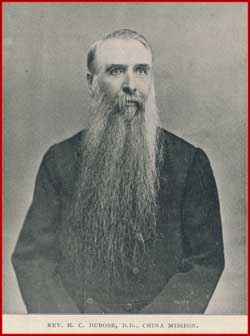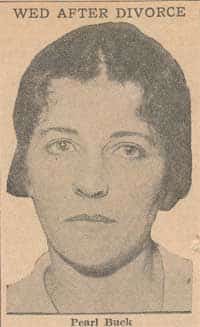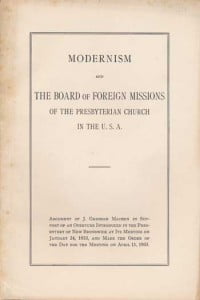MRS. ANNIE EDGAR RANDOLPH
[excerpted from The Missionary, 35.5 (May 1902): 225-226.]
This beloved missionary, whose name has long been a household word throughout our communion, entered into rest in the early morning of Sabbath, March 23, in Fredericksburg, Virginia.
Thus one of our pioneers has gone from us, the story of whose life is almost that of our foreign missionary work itself.
Annie Edgar was born on this day, September 14, in 1829, at Union, Monroe County, Virginia [now West Virginia]. At the tender age of fifteen she united with the Presbyterian Church of her native place, and soon afterwards there sprang up in her heart a desire, never to be quenched, to serve her Lord in some heathen land. But she could not obtain the consent of her widowed mother, and thus her early purpose was postponed for nearly thirty years.
In 1850, when only twenty-one, she was happily married to Dr. Thomas G. Randolph, of Hopkinsville, Ky., and the following year they removed to Mobile, Ala. In the autumn of 1853 Mobile was visited by a fearful epidemic of yellow fever. Mrs. Randolph was stricken among the first, in September, and her husband only a day or two later. He soon died, while she was desperately ill. When she awoke to a consciousness of her great loss, the blow was almost more than she could bear; but God had yet a great work for His young and now widowed handmaiden, and He mercifully raised her up from the very gates of death. It is touching to know that only a little more than a year ago, when nearly half a century had passed, the long bereaved wife made careful arrangements to be laid to rest beside the dust of the husband of her youth.
When strength returned after her illness and sorrow, Mrs. Randolph first repaired to her husband’s relatives in Kentucky, and then to her mother’s home in Virginia. A year later, in the fall of 1854, she returned to Alabama to teach. For a number of years she did an admirable work in Gainesville, in antebellum days one of the most cultivated and refined communities in Alabama. After the lapse of thirty years her memory there is still as ointment poured forth. The late Dr. C. A. Stillman, one of the ablest men of our church, was then her pastor, and he ever afterwards held her in highest esteem. In 1868 she returned to Kentucky, settling in Paris, and there in the fall of 1871 the call to her life-work came to her—the call that she had heard in her girlhood, and whose echoes had never died away in her ears.
In January, 1868, Mr. and Mrs. Inslee, then our only missionaries in all the far east, had opened a boarding school for girls in the great city of Hangchow, China. Returning to America in the fall of 1870, Mr. Inslee died in New Orleans, April 8, 1871. Meanwhile, the China Mission had been reinforced by Messrs. Stuart, Houston, and Helm, three young, unmarried men. Consequently, an earnest call came from China, in the autumn of 1871, for a competent lady to come and assume charge of the girls’ boarding school. Mrs. Randolph, now at the age of 42, at once answered this call, having first conferred with Dr. Stuart Robinson. Her offer of service was accepted, and under appointment of the Executive Committee she was in Lousiville, February 15, 1872, ready to depart with the Rev. Hampden C. DuBose and his bride, who were also under appointment to the China Mission, but terrible snow storms so impeded travel over the new Pacific railway for weeks that not until April 15 were they able to set out for San Francisco, when, in company with a large company of other missionaries, they sailed on the steamship “America,” May 1st.
With her usual punctuality and system, Mrs. Randolph at once began a valued series of letters to The Missionary, a series only to be terminated twenty years afterwards, when broken health compelled her return. Her earlier letters are still exceedingly interesting, revealing the matured, noble traits of her character.
Her party arrived in Shanghai June 4, 1872, and five days later, June 9, they were in Hangchow. Mrs. Randolph at once assumed her new duties as principal of the girls’ boarding school, a position she was to fill with preeminent success and faithfulness for the next sixteen years. On entering the school she found as her native assistant that remarkable native Christian woman, Ah-tse, whose name nearly a generation ago was so familiar to readers of The Missionary. She also found among the pupils a no less remarkable girl, Ahmun, afterwards Ah-tse’s daughter-in-law, and the gifted and devoted companion and helper in the school, both to Mrs. Randolph and Mrs. Stuart. The affection that grew up and ever after existed between Mrs. Randolph and this lovely young Christian Chinese woman was touching and beautiful, and just as she was leaving Japan in 1892, Mrs. Randolph mourned her early death as if she had been her own child.
After sixteen years of devoted toil Mrs. Randolph’s health was so impaired that in 1888 it became needful to seek relief in Japan, and in the fall of that year she was regularly transferred to the Japan Mission. At first, for a few months, she conducted a class of women in Bible study; but in the summer of 1889 she opened the now well-known girls’ boarding school in the large city of Nagoya. For four years she labored here, laying the foundations of this admirable institution, which has now for more than a dozen years been a blessing beyond price to the women of Japan. But the incessant toil of four years again so impaired her health that her return to America became needful, for temporary rest, it was hoped; but it proved to be a final return.
She left Nagoya on a chill November morning in 1892, before day had dawned. Nevertheless, the love of her Japanese pupils and friends was such that a large company of them assembled at the station, and wept as her train sped away to Yokohama, where she was to take the steamer.
In 1895 she became a teacher in the Assembly’s Home and School at Fredericksburg, Va., and when that institution underwent changes in 1898, she came with the Rev. R. M. Hodge to Nashville, as a member of the faculty of the Nashville Bible Institute and Missionary Training School; she to became lady principal and teacher of the history and methods of missions. For nearly two years she filled this position, greatly endearing herself to all the missionary students who were privileged to share her companionship and daily instruction. Again returning to Fredericksburg, she counted it a privilege to do anything in her power for the cause so near her heart; and then, just as the week ended, and the Sabbath was being ushered in, she entered into the rest that remaineth to the people of God. Her last illness was brief, and during much of the time she was unconscious. She was often heard praying in Chinese, a touching proof of how her heart was still in China. During conscious moments she bore earnest testimony to the exceeding preciousness of her Saviour, reiterating, “He is precious, so precious, so precious,” and thus she sweetly fell asleep. After appropriate services in Fredericksburg, her body was taken by a beloved sister to Mobile, Ala., where again, on Tuesday, services were held in the Jackson Street Presbyterian Church by the Rev. Messrs. Planck and Sims, after which she was laid to rest in the beautiful Magnolia Cemetery. There, half a century ago, she had felt her life’s one great sorrow; and there she shall rise to life’s everlasting joy.
Her sister writes: “Her last thoughts were of missions. She was very anxious to have $50 to send to the Committee from the Ladies Missionary Society of Fredericksburg the week she was called away. When roused to be told that the sum proved to be $58, she said, ‘I am so glad, so glad.’ And thus with God’s work still first in her heart, she went up to see the King in His beauty, and to be joined again to the companion of her youth, and the beloved saints who had gone before her from the land of Sinim.”
Words to Live By:
Is God’s work first in your hear, dear reader? Let us all pray for one another, that we would not fall from our first love of our Lord and Savior, Jesus Christ, but remain ever faithful and steadfast in pursuing His will.



